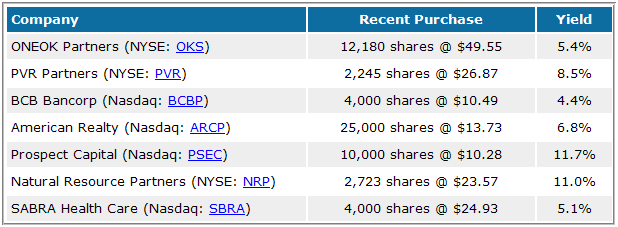They say to never trust a skinny cook, the logic being that any chef who works in a kitchen all day and creates irresistible dishes probably can't help but overindulge and pack on a few pounds.
For much the same reason, I find it reassuring when a mutual fund manager invests their personal cash in his or her own fund. And I like it even better when CEOs and other top executives stash a sizable percentage of their net worth in their own company's stock.
Conventional wisdom says that it's a bullish sign when a company invests in itself through stock buybacks. If that's true (and in most cases it is), then what does it say when these same managers sink a few million dollars of their OWN money in the shares?
After all, board members, directors, chairmen and other upper executives know the business and the industry better than anyone else. Who understands the inner workings of Apple (Nasdaq: APPL) better than Tim Cook? Who has their finger on the pulse of online advertising quite like Google boss Larry Page?
These well-connected individuals also have access to privileged information that the rest of us don't get to see. That's not to insinuate anything underhanded; public companies don't have to disclose everything. The point is, when these people act, they do so with good authority.
Personally, I don't pay terribly much attention to insider sales. Can they be an indication of trouble ahead? Sure. But they could also mean that the seller is simply diversifying his holdings or raising cash to pay for his daughter's wedding or grandson's college education. Bottom line, sales aren't necessarily a red flag.
On the other hand, insider purchases tend to be far more instructive. You only invest in a stock for one reason: you believe it's undervalued and headed higher. And again, when a chairman or CFO is the one buying, you can bet they aren't doing it on a whim -- but have sound supporting evidence.
The numbers back this up. There have been numerous empirical studies done over the years to quantify the effect.
A recent study at the University of Illinois found that stocks receiving heavy insider support historically outperform the market by 4.8% in the year following the transactions.
These and other studies examined different groups of stocks under different methodologies. But taken together, they do point to the same conclusion: Stepped-up levels of insider buying often foreshadow market-beating returns.
If one inside buyer is a positive show of confidence, then two or three (or more) all buying in unison sends an even louder message.
With all this in mind, I went in search of stocks that had strong levels of insider ownership relative to the overall share count. And since I'm more interested with insider buying activity that has taken place over the past few weeks or months in anticipation of an upward move or positive catalyst, I screened for stocks whose insider buying volume through the third quarter had shown the biggest surge relative to the same point last year. To tighten up the results, I also looked for companies with steady earnings prospects and, of course, generous current yields (4% or better).
Here are some of the more notable stocks that made the cut.

When sifting through the results of this screen, a few things became obvious.
There are quite a few midstream energy companies on the list, including one holding I recommended previously in my High-Yielding Investing advisory. Even better, readers were able to pick up the stock at an even cheaper price -- and well before the CEO bought shares on August 9.
The regional banking sector was also well represented. But insiders appeared to be most enamored with private equity and business development stocks. Could that mean that the entire sector has some tailwinds at the moment? I'd say yes. Thankfully, these sectors are all represented in my High-Yield Investing portfolio, and this list should provide a good starting point for readers to conduct further research for winners.
Good Investing!
Nathan Slaughter



